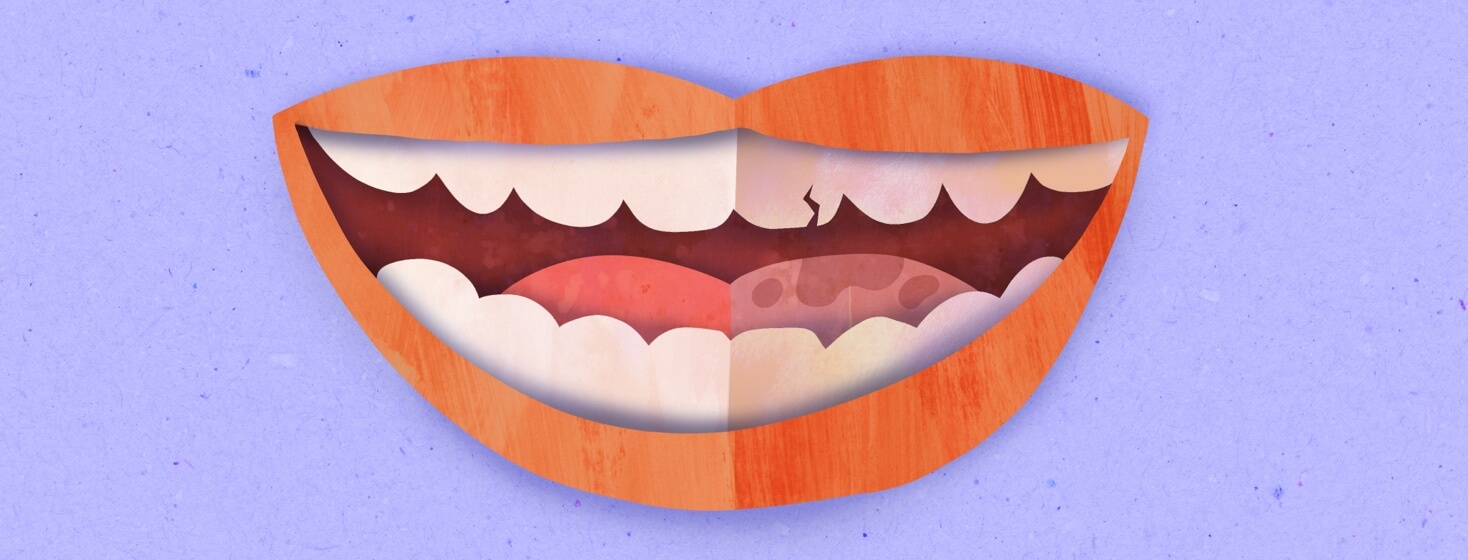Dental Problems With Liver Disease
Dental issues have become second nature for me during my fight with liver disease. When I was first diagnosed with end stage cirrhosis and a bunch of other health issues started popping up, I asked my hepatologist about the list of funny things happening to me since my liver went downhill.
The start of my dental issues
Let me start off by sharing, I am not a medical doctor. What I am sharing is strictly based on my own personal journey with liver disease. What my doctor recommended to me was based on my own health status. Please seek out your liver doctor to advise on any questions or concerns you have regarding your symptoms.
I started noticing my teeth were becoming more fragile and started chipping at the slightest thing I ate. It was not like I was chomping on ice or anything. I was eating baked chicken, and all of a sudden, part of my tooth fell out. Out of concern, I booked an appointment with my dentist. During my exam and x-rays, he shared that I had chipped several of my molars recently as well. Even though no huge portion fell out like the molar, it was very alarming to me.
I have always been one to take good care of my dental health, and so I was perplexed at to the reason why my teeth were suddenly chipping away. My dentist asked if I was taking any new medications that might warrant the sudden change. No new medications were started, in fact I do not take much because I am trying to protect my liver.
What's causing my dental pain?
He gave me a sample of a fluoride wash and toothpaste to try. Within a few weeks, I noticed temperature sensitivity began hurting my teeth. Before, I could drink iced and hot drinks with no problem at all. All of a sudden, I had a fingernails-on-a-chalkboard feeling in my mouth when something was too cold or too hot. Back to the dentist I went, thinking nothing about my liver disease. After all it was my mouth, not my liver. They now gave me a bunch of sensitive toothpaste samples to try.
My liver follow-up was only a few days after this last dental appointment. I always like to bring a notebook to ask the certain questions pertaining to my liver health that came up so that I can discuss them during my appointment. I did not have my dental issue written down, again, because it was not pertaining to my liver. I happened to be sipping my water and didn't realize I had too much ice in it. Gripping my jaw in agony, my doctor looked up.
The impact of liver disease on dental health
I shared how my dentist just fixed 3 molars and how I was now having sensitivity issues. He replied, "Ahhh, yes." Sitting there, that comment peaked my curiosity. Before I could ask about it, he began to share that liver disease can cause big problems with our teeth, eyes, bone health, nerve health, and the list went on.
When our livers are not able to perform their primary duty of filtering out toxins in the body, it leaves our bodies fighting bacteria, infections, and all sorts of things.1 Most of us do not know when we actually get a cavity unless it becomes infected or painful, at which point we would seek treatment.
For a liver patient, this can lead to bacteria staying in our teeth and gums and, therefore, rotting away the teeth. They can become brittle, and even just fall out.2 Because our livers can't digest proteins very well, it begins to then cause issues with our bones, joints, and muscle tissues.3
Prioritizing oral hygiene
It is best to speak with your liver specialist about ways you can try to slow down the possible progression of tooth decay. They can offer a better diet that could help your liver. I was told to add more vitamins to my daily diet, as putting too many dietary supplements into my body is hard on my liver. So, I began eating more leafy greens, finding my protein in lean meats, such as fish and chicken. I will share more about a good liver diet in a future article.
Although, we cannot "cure" dental issues, we can continue to do our part and make sure our oral hygiene is above average. Happy brushing, flossing, and regular checkups at the dentist!
If you are experiencing new or "unusual" symptoms, talk with your doctor and have that notepad ready with questions to be answered. Even a tiny spiral flip pad works perfect.

Join the conversation